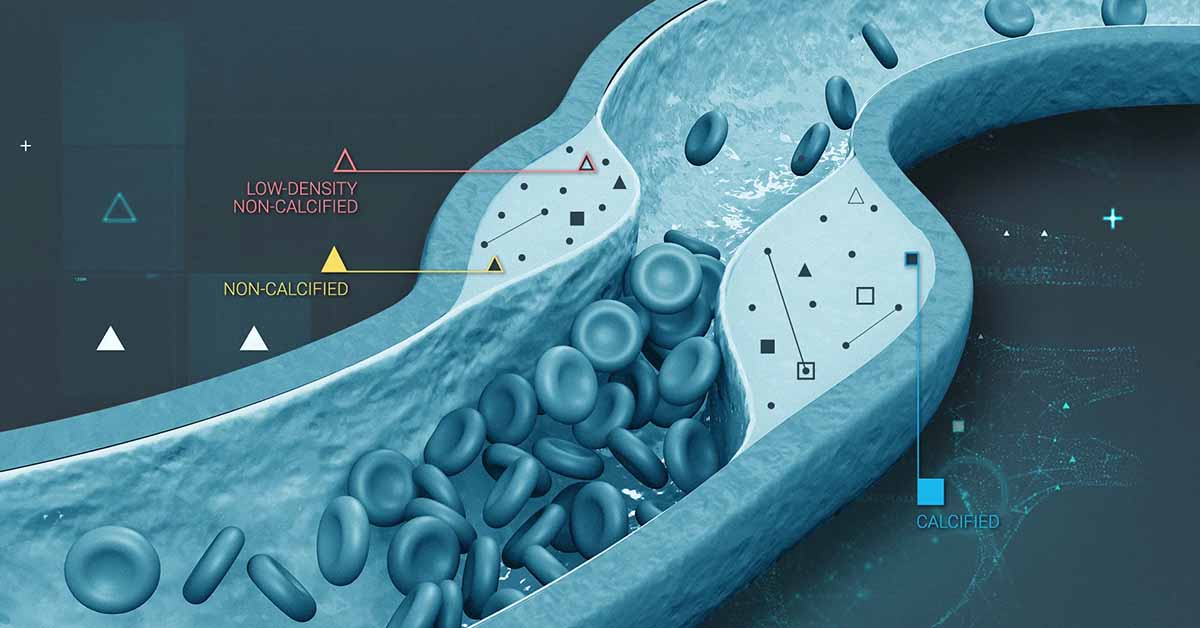The Recipe to a Healthy Heart:Your Guide to Preventing Heart Disease
Sure, the taste of food is important, but do you know how your diet impacts your heart? Many foods contain hidden ingredients that negatively impact...
6 min read
 Cleerly
:
August 29, 2024
Cleerly
:
August 29, 2024

Sure, the taste of food is important, but do you know how your diet impacts your heart? Many foods contain hidden ingredients that negatively impact your overall heart health. Maintaining a healthy diet is crucial for preventing and managing heart disease. Discover how to make heart-healthy choices with these 10 tips!
We’ve all heard the saying, ‘everything in moderation,’ and it applies to all foods. It’s easy to overeat and miss the signs your body gives when it’s full. Both what you eat and how much you eat impact your heart health. Eating more calories than you burn raises your risk of weight gain, which in turn heightens the likelihood of developing atherosclerosis (heart plaque), an often overlooked factor in heart disease.
Learn to master portion sizes with these helpful tips. Your heart will appreciate it!
Though an apple a day isn’t a substitute for visiting your doctor, fruits and vegetables are essential for your heart health. Packed with vitamins, minerals, and nutrients, they support overall well-being and are low in calories. Plus, they’re rich in fiber, potassium, folate, and vitamins A and C—all key players in preventing heart disease.1 Vitamins A and C act as powerful antioxidants in your body, slowing down or preventing atherosclerosis by reducing the buildup of plaque in your arteries, stemming from cholesterol and other substances.2
Make fruits and veggies your go-to snack for a heart-healthy diet.
When it comes to grains, opt for nutrient-packed options low in added sugars, saturated fats, and sodium. Whole grains have everything in them—the bran, germ, and endosperm—which is good for your heart. They’re also full of dietary fiber, which can help lower cholesterol and heart disease risk. Refined grains, however, have little to no fiber due to processing that removes the bran and germ. Fiber also helps you feel full and eat less, keeping your weight in check and your heart healthier.
Make sure to add different types of whole grains to your weekly meals to help combat heart disease.
Cutting down on saturated and trans fats can significantly reduce your risk of heart disease. Saturated fats, found in animal-based foods like beef, pork, and full-fat dairy products, as well as topical oils like coconut and palm, can raise bad (LDL) cholesterol levels in your blood.4 Trans fats, commonly found in fried food, baked goods, and frozen meals, are even worse. While they increase bad cholesterol as well, they also decrease good (HDL) cholesterol.5 Thankfully, trans fats are no longer allowed in foods made in the United States. But remember, they might still be in products from other countries.
Both types of fats contribute to the buildup of plaque in your arteries, known as atherosclerosis. To safeguard your heart against heart disease, limit your intake of saturated and trans fats.
Healthy fats, known as unsaturated fats, come in two main types: monounsaturated and polyunsaturated (omega-3 and omega-6). Monounsaturated fats have one unsaturated carbon bond, while polyunsaturated fats have more than one. These fats can improve your cholesterol levels by decreasing bad cholesterol and increasing good cholesterol, which helps lower your risk of heart disease.6
Swap out foods high in saturated and trans fats for those rich in healthier unsaturated fats to boost your heart health.
The proteins you eat can make a big difference for your heart health and reduce your risk of heart disease. Choose heart-healthy options like lean meats, skinless chicken breasts, and fish. Fish, especially cold-water varieties like salmon, black cod, and herring, are rich in omega-3 fatty acids, a polyunsaturated fat. These fats help reduce triglycerides (a type of fat in your blood), lower the risk of arrhythmias, slightly lower blood pressure, and slow the progression of atherosclerosis.7
Make these proteins a regular part of your meals to support your heart and overall health.
We’ve all said “pass the salt” at some point, but before you sprinkle more on your meal, consider how it affects your heart. Sodium, a mineral found naturally in foods, isn’t the same as table salt, which is 40% sodium and 60% chloride. Consuming too much sodium can raise your blood pressure, a major risk factor for heart disease. Over time, high blood pressure can damage your blood vessels and accelerate plaque buildup (atherosclerosis), reducing blood flow to the heart. According to the American Heart Association, over 70% of our sodium intake comes from processed foods, about 15% is found naturally in foods, and about 11% from cooking or adding to your plate.8
Cutting back on table salt is a good start, but even if you steer clear of the salt shaker, you’re probably still getting too much sodium.
Making changes to your eating habits might feel daunting, but don’t worry! Nowadays, there are plenty of food substitutes that will reduce your risk of heart disease. Take control by swapping in healthier options for things like salt, added sugars, and fatty foods. Start small, like using skim milk instead of whole milk or low-fat yogurt instead of butter on your potato. Small changes like these can make a big difference in keeping your heart healthy!
You don’t need to be a chef to whip up heart-healthy meals that boost your well-being. Start by crafting daily meal plans using the tips above. Center your meals around veggies, fruits, whole grains, lean proteins, and good fats to fuel your heart with the right nutrients. Cut back on foods with a high amount of added salts, too. Planning ahead stops you from reaching for the takeout menu or processed snacks that harm your heart. With a little prep, you’ll be on your way to a happier, healthier heart.
Don’t let these tips intimidate you! Living healthily is all about balance. It’s okay to indulge yourself occasionally. Your regular eating habits affect your heart disease risk, so prioritize healthy foods most of the time, but allow yourself some treats. Having a soda or candy bar once in a while won’t upset your heart; it’s all about finding the right balance.
You’re already on your way to a healthier heart by learning these 10 heart-healthy tips. Now, it’s time to put them into action! Start slow and don’t overwhelm yourself. Remember, these tips are just one piece of the puzzle. Other lifestyle habits like regular exercise and consistent sleep also play a crucial role in fighting heart disease.
Disclaimer: The information provided is for general informational purposes and is not a substitute for professional medical advice. Before incorporating any new habits or making significant changes to your diet, it is important to consult with your physician or a qualified healthcare provider.
References:
1. American Heart Association. (2023, October 26). How to eat more fruit and vegetables. www.heart.org. https://www.heart.org/en/healthy-living/healthy-eating/add-color/how-to-eat-more-fruits-and-vegetables ⇱
2. Heart&Stroke. (n.d.). Vegetables and fruit. Heart and Stroke Foundation of Canada. https://www.heartandstroke.ca/healthy-living/healthy-eating/vegetables-and-fruit ⇱
3. American Heart Association. (2024, June 25). Get to know grains: Why you need them, and what to look for. www.heart.org. https://www.heart.org/en/healthy-living/healthy-eating/eat-smart/nutrition-basics/whole-grains-refined-grains-and-dietary-fiber ⇱
4. American Heart Association. (2023a, October 22). Fats, oils and heart health. Fats, oils and heart health | Heart Foundation. https://www.heartfoundation.org.au/healthy-living/healthy-eating/fats-oils-and-heart-health ⇱
5. American Heart Association. (2023a, May 10). Trans fats. www.heart.org. https://www.heart.org/en/healthy-living/healthy-eating/eat-smart/fats/trans-fat ⇱
6. American Heart Association. (2023c, October 25). Polyunsaturated fats. www.heart.org. https://www.heart.org/en/healthy-living/healthy-eating/eat-smart/fats/polyunsaturated-fats ⇱
7. MedlinePlus. (2022, June 22). Omega-3 fats - good for your heart: Medlineplus medical encyclopedia. https://medlineplus.gov/ency/patientinstructions/000767.htm ⇱
8. American Heart Association. (2024a, May 22). Get the scoop on sodium and salt. www.heart.org. https://www.heart.org/en/healthy-living/healthy-eating/eat-smart/sodium/sodium-and-salt ⇱

Sure, the taste of food is important, but do you know how your diet impacts your heart? Many foods contain hidden ingredients that negatively impact...

As we reach the end of 2023 and yet another remarkable year at Cleerly, it’s a great opportunity to reflect on all we’ve accomplished and begin...

Cleerly has had a busy few months – attending conferences, panel sessions, and winning awards as we all work together to achieve our mission of a...

Heart plaques, which are the build-up of substances like cholesterol and fat in the heart’s arteries, can increase your risk of heart attack. A...

Heart disease is the cause of death for 700,000 Americans1 and nearly 17.9 million people worldwide every year.2 While some of these individuals...

Half of patients who have a heart attack don't show symptoms prior to their event. A new standard of precision care that emphasizes comprehensive...